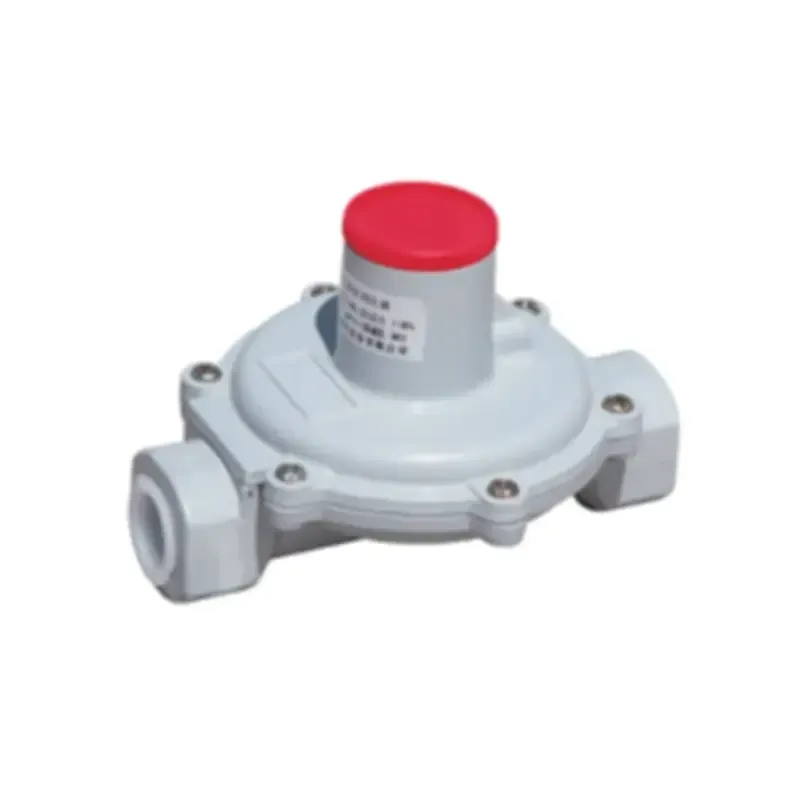
Nov . 10, 2024 05:11
Back to list
Pressure Regulation System for Optimal Performance and Efficiency in Various Applications
Understanding Pressure Regulators A Key Component in Fluid Control Systems
Pressure regulators play an essential role in various applications that involve fluid control, whether in industrial processes, household appliances, or automotive systems. This article aims to provide an in-depth understanding of what pressure regulators are, how they function, and their significance in maintaining system safety and efficiency.
What is a Pressure Regulator?
A pressure regulator is a device designed to automatically control the pressure of a fluid to a predetermined level. It functions by reducing the pressure from a source, such as a gas cylinder or a fluid storage tank, to a lower, stable output pressure. This regulation is crucial for ensuring that downstream equipment operates within its optimal pressure range.
Pressure regulators can be found in various forms, such as gas pressure regulators used in heating systems, or water pressure regulators often installed in plumbing systems. They can also be categorized based on their operation mode—spring-loaded regulators, diaphragm regulators, and electronic regulators, each with specific functions and applications.
How Do Pressure Regulators Work?
The operation of a pressure regulator primarily relies on balancing forces acting on a diaphragm within the device. When fluid enters the regulator, it exerts pressure on one side of the diaphragm. If this pressure exceeds the set point of the regulator, the diaphragm moves, which in turn adjusts a valve that controls the fluid flow. As a result, the output pressure is reduced and maintained at a constant level.
Most regulators also incorporate a spring that opposes the pressure on the diaphragm. The tension in the spring can be adjusted to set the desired output pressure. In essence, the regulator continuously monitors the pressure and makes adjustments as necessary, ensuring the pressure remains consistent despite changes in flow rates or upstream pressure fluctuations.
.
1. Safety One of the primary reasons for utilizing pressure regulators is safety. Excessive pressure can lead to catastrophic failures, including pipe bursts and equipment malfunctions. By maintaining a stable pressure, regulators help prevent accidents and enhance the overall safety of the systems they are part of.
منظم الضغط

2. Efficiency Efficient processing in systems, such as engines or heating facilities, relies heavily on appropriate pressure levels. Regulators ensure that valving and controls operate within optimal parameters, contributing to enhanced performance and fuel efficiency.
3. Equipment Protection Many devices, such as pumps, valves, and gauges, can only function correctly within specific pressure ranges. Regulators protect these components from damage due to pressure surges or drops, thus extending their lifespan.
4. Process Control In industrial applications, maintaining consistent pressure is vital for product quality. In processes such as chemical mixing or pharmaceutical production, variations in pressure can affect the outcome. Regulators enable precise control, ensuring uniform quality.
Common Applications of Pressure Regulators
- Water Supply Systems In residential plumbing, pressure regulators prevent excessive water pressure, ensuring safe and comfortable usage while protecting plumbing fixtures. - Gas Systems In HVAC systems, gas regulators maintain optimal gas pressure for efficient combustion and heating.
- Automotive Fuel pressure regulators in engines ensure that the correct fuel pressure is delivered to the injectors, optimizing engine performance and emissions.
- Industrial Applications Pressure regulators are widely used in various manufacturing processes where precise pressure control is crucial, such as in chemical processing and distillation.
Conclusion
In conclusion, pressure regulators are fundamental components that contribute significantly to safe and efficient operation in various systems. By controlling and maintaining desired pressure levels, they enhance safety, protect equipment, and ensure the efficiency of processes. With their diverse applications, understanding the function and importance of pressure regulators is essential for anyone involved in fluid control systems. Whether in the home, industry, or transportation, pressure regulators are integral to modern engineering and technology.
Latest news
-
Safety Valve Spring-Loaded Design Overpressure ProtectionNewsJul.25,2025
-
Precision Voltage Regulator AC5 Accuracy Grade PerformanceNewsJul.25,2025
-
Natural Gas Pressure Regulating Skid Industrial Pipeline ApplicationsNewsJul.25,2025
-
Natural Gas Filter Stainless Steel Mesh Element DesignNewsJul.25,2025
-
Gas Pressure Regulator Valve Direct-Acting Spring-Loaded DesignNewsJul.25,2025
-
Decompression Equipment Multi-Stage Heat Exchange System DesignNewsJul.25,2025

